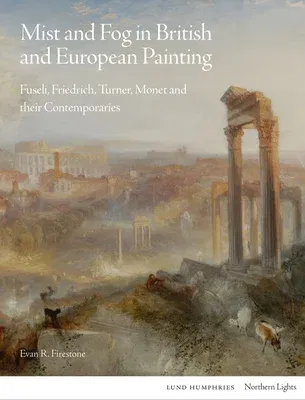Evan R Firestone
(Author)Mist and Fog in British and European Painting: Fuseli, Friedrich, Turner, Monet and Their ContemporariesHardcover, 30 June 2023

Qty
1
Turbo
Ships in 2 - 3 days
In Stock
Free Delivery
Cash on Delivery
15 Days
Free Returns
Secure Checkout

Part of Series
Northern Lights
Print Length
176 pages
Language
English
Publisher
Lund Humphries Publishers Ltd
Date Published
30 Jun 2023
ISBN-10
1848225733
ISBN-13
9781848225732
Description
Product Details
Author:
Book Format:
Hardcover
Country of Origin:
US
Date Published:
30 June 2023
ISBN-10:
1848225733
ISBN-13:
9781848225732
Language:
English
Pages:
176
Publisher:
Series: